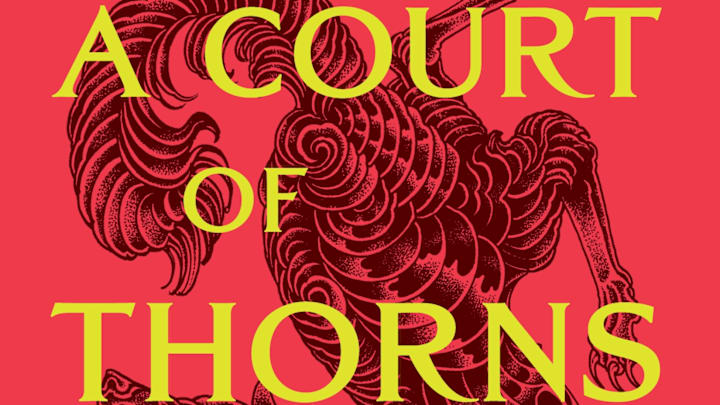Recently, I wrote two articles about fantasy books being adapted for the big or small screen: a list about exciting projects that are moving forward, and one spotlighting the adaptations that appear to be stuck in development hell. While comparing them, I noticed something frustrating. Out of the eight adaptations that are moving forward, or at least receiving regular updates, five are based on books from male authors and only three are based on books by women. Meanwhile, among the 10 series that have seemingly stalled, nearly all (eight of 10) are based on books written by women.
This discrepancy paints a bleak picture of Hollywood and its persistent refusal to elevate stories written by, and for, women, especially those that blend romance and fantasy. It suggests something insidious about the types of stories Hollywood deems valuable enough to adapt, especially when you consider that the "romantasy" genre has basically become one of the book industry's most prominent cash cows.
There are already significantly fewer romantic movies being made, with many think pieces written over the years about the lack of of sexuality onscreen. Add fantasy to that, with its ballooned budget and epic visual effects, and you can see why studios get nervous.
Not only that, but if filmmakers really lean into adult fantasy stories, they might have to (gasp!) lean into the steamy content that has proven to be such a significant draw for readers. Faithful adaptations of many of these works would lead to higher age ratings, potentially limiting the audience reach. But that's what television is for (and why, I think, so much dark and adult fantasy is relegated there rather than to theaters where an R-rating could be a death knell).
For example, the A Court of Thorns and Roses series by Sarah J. Maas — about a young woman who finds herself in the world of faeries — is an immensely popular romantasy book series, selling over 38 million copies worldwide. Even people who dislike Maas' writing cannot deny that ACOTAR has a substantial fanbase hungry for more. Dream fan-castings and artwork go viral often. So why is the television adaptation basically dead at Hulu?
That being said, a TV show based on Rebecca Yarros' Fourth Wing series does appear to be moving forward at Amazon and might actually become a full-fledged television series. Its success could help pave the way for more romantasy adaptations. For now, though, it's merely the exception that proves the rule. We need Hollywood to take risks, to stop prevaricating over all of these book rights they've gobbled up and make something of them.
I can't help but wonder if studios have gotten cold feet due to the days of dystopian YA burnout. Remember in the 2010s when series like Divergent, The Maze Runner, The Fifth Wave, The Host, and similar stories were being adapted left and right thanks to the popularity of The Hunger Games? While some of them performed well theatrically, many floundered at the box office, leading to the end of those kinds of adaptations. And maybe the wrong lessons were learned from all of this, like don't bet big on female-led franchises (even though not all of them were female led).
But there have been so many successful movies and television shows in this area over the years that it seems ridiculous not to capitalize on a new boom. There's Bridgerton, The Twilight Saga, Resident Evil, Outlander, and House of the Dragon, all of which feature prominent female leads and romantic elements. Even Barbie became a billion-dollar success!
It's hard to say what the future holds for the romantasy genre. In the book industry, it shows no signs of slowing down, but it might be a while before we really see these stories take off in a visual medium. If Fourth Wing manages to get made and prove successful for Amazon, maybe it will be the tipping point needed to get some of these other projects moving again.
Until then, it's hard not to question Hollywood's reluctance and even harder not to take a cynical view that Hollywood simply doesn't consider taking risks on predominantly female audiences a worthwhile endeavor.
To stay up to date on everything fantasy, science fiction, and WiC, follow our all-encompassing Facebook page and Twitter account, sign up for our exclusive newsletter and check out our YouTube channel.
